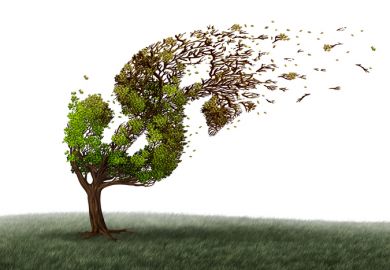Shorn of sophistry, Tsering Shakya's wisdom can be summed up by the earthy adage about lying back to enjoy a rape that cannot be prevented. A British-educated Tibetan whose family fled to India during the cultural revolution, he is not entirely certain either that violation does take place. Not for him Enoch Powell's claim that there being no empirical yardstick for measuring nationhood, that which thinks itself a nation is one. Shakya does admit that in Tibet's case self-image was buttressed by a declaration of independence as well as de facto independence, but does not think that this received de jure recognition. Taking pragmatism to a surprising extreme, he denounces as "unashamedly pro-Tibetan" the International Commission of Jurists' 1959 report that between 1911 and 1951 Tibet was "a fully sovereign state, independent in fact and law of Chinese control".
If the ICJ made little difference, it was because Tibet has always been a pawn on the imperial chessboard. Shakya is absolutely right in saying that China is "able to fend off criticism by western governments, aware that Tibet is not a sufficiently significant issue for the West to put its economic interests at risk, by the promise of trade and economic benefits". There are honourable exceptions, but when George Bush or Bill Clinton met the Dalai Lama, it was less to support Tibet than to bargain with China.
At another level, Tibet "has become almost an allegory of the West's engagement with a civilisation that is altogether elsewhere", a Harvard professor wrote in The New Republic last year. "In the history of the American imagination, the story of Tibet is a story of Orientalism at its zaniest, from ... Timothy Leary's psychedelic commentary on The Tibetan Book of the Dead to the movie set reconstruction of Lhasa's Potala Palace in Argentina for Seven Years in Tibet ."
"Talk about Tibet," pleads the Tibetan Bulletin , published from the Dalai Lama's headquarters in Dharamsala, in India. "Keep what's happening in Tibet alive." The Bulletin also repeats that this Shangri-la of the mind "is a country under Chinese occupation where 1.2 million Tibetans have died as a direct result of alien rule."
China's reasons are rooted in its imperial inheritance, xenophobic pride, and revolutionary conviction that the nationality of minority Tibetans and Uighurs only reflects economic disparity. Shakya substantiates this, drawing on indigenous, oral and archival sources not available to other chroniclers. His scholarship is not in question; only his discernment. Seeing history as an irreversible process, he rejects confrontationist postures and almost echoes China Daily to suggest that the pontiff is more keen to expose and upstage the Chinese than to engage them seriously at a meaningful level.
Perhaps. But where is that level? And what alternative is open to the exiled leader? As Shakya himself reiterates, Beijing has moved so far from the 1951 17-point agreement promising not to "alter the established status, functions and powers of the Dalai Lama" that it now derides him as a "political fugitive" and will not be satisfied with anything save total capitulation, even in religious matters.
It is therefore astute of the Dalai Lama to keep the dialogue going, even if it means suffering one rebuff after another. It maintains his leverage, ensures that Tibet is not forgotten and keeps China on the defensive. Without his tireless diplomacy, the ICJ would not have reiterated that being "under alien subjugation" the Tibetans are entitled to the right to self-determination.
Shakya denies nothing, even admitting that pressure and persuasion have "failed to create a homogenous group of Tibetans on whom (the Chinese) could rely", and that China's motherland claim evokes no filial response even 50 years after the invasion and 40 after the Dalai Lama's flight. He fills in many blanks about Britain's fatal prevarication at the UN, the CIA's Mustang operation and India's secret Unit 22 Tibetan regiment, but confuses the chogyal of Sikkim with his father, and leaves us no wiser about who the Dalai Lama's ubiquitous elder brother, Gyalo Thondup - Dharamsala's link with Beijing - really works for.
Dharamsala and the world could profit from the exploration of the close nexus between shifts in Beijing and developments in Tibet that is the book's real achievement. Of course, Shakya's argument that only "the more complex issues of ideology and power which confront the (Communist) leadership" will determine Tibet's future will not endear him to the refugees who told the BBC that if India could become free after nearly 200 years of colonial rule, so can Tibet. But they would be unwise to ignore The Dragon in the Land of Snows because of that, for it provides - perhaps inadvertently - a valuable insight into the thinking of Asia's rising hegemon, a nation that historically divided the world into tributaries and barbarians, and has no experience of treating other countries as equals. That is why helpless Tibet, landlocked and remote, is as relevant to international stability as Berlin was in the Kennedy years.
Sunanda K. Datta-Ray is the author of Smash and Grab: Annexation of Sikkim .
The Dragon in the Land of Snows
Author - Tsering Shakya
ISBN - 0 7126 6533 1
Publisher - Pimlico
Price - £12.50
Pages - 573
Register to continue
Why register?
- Registration is free and only takes a moment
- Once registered, you can read 3 articles a month
- Sign up for our newsletter
Subscribe
Or subscribe for unlimited access to:
- Unlimited access to news, views, insights & reviews
- Digital editions
- Digital access to THE’s university and college rankings analysis
Already registered or a current subscriber? Login



